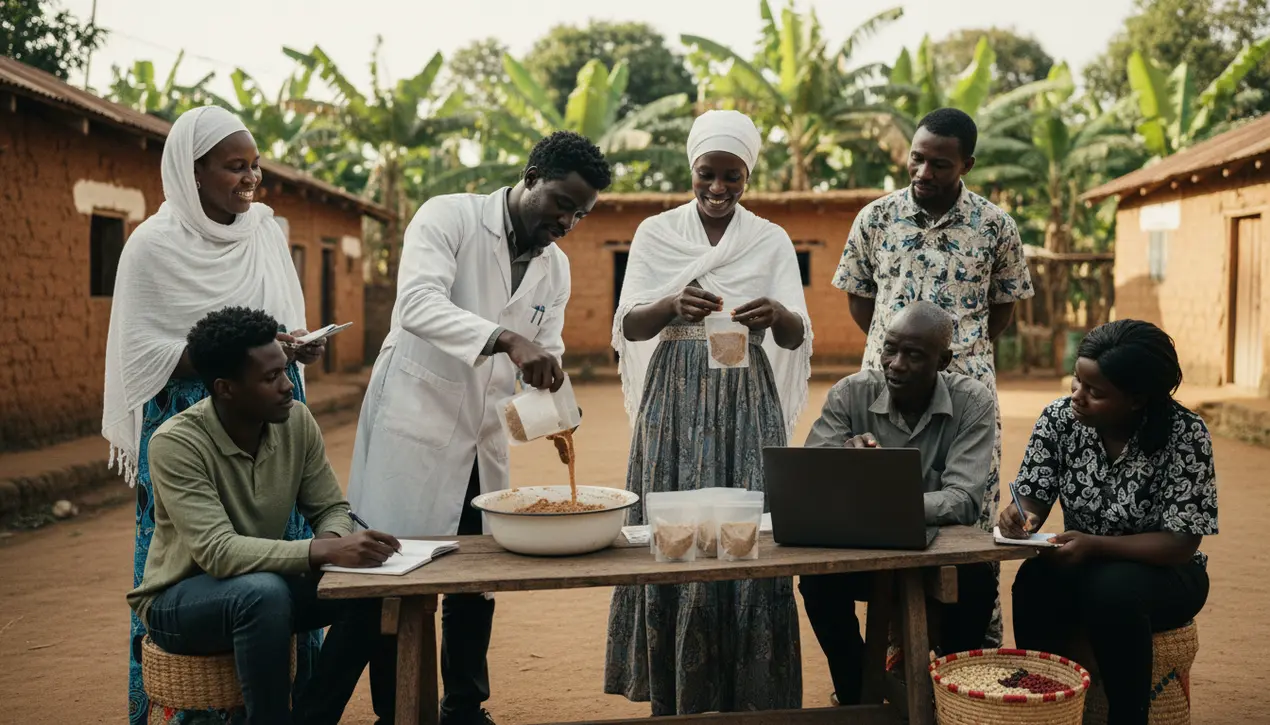
Otherfood & diningSustainable Eating
How 6 organizers are building effective global health solutions
RA
Rachel Adams
1 hour ago7 min read3 comments
In an era where global development is faltering—with funding streams drying up and crises multiplying—the most resilient force for change isn't found in distant boardrooms or new international pledges, but in the determined work of people on the ground. These local organizers, nurses, food innovators, and environmental defenders are meeting escalating needs with a potent blend of competence and courage, transforming urgency into tangible, life-sustaining service.They demonstrate with quiet power how meaningful change scales from the street upward, reshaping local food markets to combat hunger, stitching together frayed public health systems, expanding access to mental health care, challenging the stigma of period poverty, and forcing corporate polluters to face accountability. They possess an intimate, granular knowledge of their communities—the bus routes, the backroads, the local languages, the prevailing rumors—details that never make it into a sterile grant proposal but are the very fabric of building trust.This trust is cultivated one school lunch, one home visit, one community meeting at a time, and is then meticulously woven into durable, self-sustaining systems. In a year of profound volatility, this hyper-local reliability has become global development's most undervalued asset.If we genuinely desire lasting outcomes, we must back proximity, for the people closest to the problem are not just witnesses; they are the architects of the solution. Consider the work of Jean Paul Gisa and Sarah LaHaye in Rwanda, who are tackling the twin crises of food insecurity and environmental degradation not with abstract theories, but with a practical venture: creating an affordable, shelf-stable plant-based meat alternative from locally grown beans.Their textured vegetable protein (TVP) project, now in market testing, is an elegant ecological solution. It offers a nutrient-rich option for populations with low meat consumption, while simultaneously creating a market incentive for local farmers to plant legumes, which are renowned for their soil-restoring properties—a critical factor for long-term agricultural resilience in a region facing climate pressures.This stands in stark contrast to the prevailing narrative from many global institutions that often push for increased animal product consumption, a path fraught with a heavier environmental footprint. Similarly, in Nigeria, Hakeem Jimo has spent over a decade building the plant-based food sector from the ground up, founding Lagos's first vegan restaurant, Veggie Victory, and later developing VChunks, a seitan-based product tailored to local palates and stews.His advocacy extends beyond business; as the Nigerian country director for ProVeg, he works to shape food policy, understanding that Africa's projected protein demand cannot be met by animal agriculture alone without devastating ecological consequences. The fight for public health is equally grassroots.Nigerian activist Hauwa Ojeifo, after her own harrowing experience with a mental health system that had only 250 psychiatrists for a population of over 232 million, founded She Writes Woman. This organization provides a 24/7 helpline and free tele-therapy, shattering taboos and offering a lifeline in a region where psychological disorders are heavily stigmatized.Her advocacy, backed by a significant grant from Melinda French Gates, is now funding projects to improve women's health, insisting that people with disabilities and mental health conditions must have a seat in every decision-making room. In India, Khyati Gupta's Pinkishe Foundation confronts the silent crisis of period poverty, which sees one in four girls missing school each month and many dropping out entirely.Starting from a moment of teenage observation, her organization has distributed over five million pads and provided menstrual education to hundreds of thousands, tackling not just a health and hygiene issue but a fundamental barrier to education and gender equality. Then there is the unyielding environmental justice work of Phyllis Omido in Kenya.Her activism began not from a desire for fame, but from a mother's desperation when her infant son fell ill with lead poisoning from a nearby battery smelter. She organized her community, faced arrest, and waged a relentless legal battle that culminated in a landmark 2024 Supreme Court ruling, affirming polluter liability and establishing a cleanup fund.Her victory is a testament to the power of community-led action and a legal beacon for environmental defenders worldwide. These six organizers, scattered across continents, are not waiting for salvation from above. They are the embodiment of a bottom-up revolution, proving that the most effective global health solutions are often those deeply rooted in the soil of local context, knowledge, and unwavering human resolve.
#local organizers
#global health
#sustainable food systems
#plant-based protein
#community-led solutions
#featured
Stay Informed. Act Smarter.
Get weekly highlights, major headlines, and expert insights — then put your knowledge to work in our live prediction markets.
Comments
Loading comments...
© 2025 Outpoll Service LTD. All rights reserved.